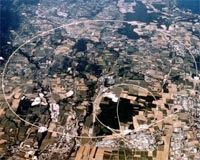| . |  |
. |
Sanaa, Yemen (UPI) Oct 13, 2009 The government's war against Shiite tribal rebels, who Sanaa claims are backed by Iran, drags on in a savage stalemate that may be widening with the reported involvement of fighters from Hezbollah, Tehran's Lebanese proxy. Claims by the government that it is beating the rebels in the mountains of Saada province along the border with Saudi Arabia are wearing a little thin as the fighting escalates. Amid stepped-up army operations, the Shiite Zaidi rebels, known as Houthis after the clan that leads them, claim they shot down two air force strike jets in four days earlier this month -- a MiG-21 on Oct. 2 and a Sukhoi Su-22 on Oct. 5. Sanaa admits it lost the jets but insists both crashes were the result of technical failures rather than ground fire. That is entirely possible, given the air force's lack of combat experience, particularly in such rugged terrain, and the considerable age of its aircraft, some of them designed in the Korean War era. However, on Oct. 7 U.S.-based security consultancy Strategic Forecasting quoted sources in Lebanon's Iranian-backed Hezbollah as saying that their guerrillas had shot down the attack planes with Iranian-manufactured Misagh-1 shoulder-fired surface-to-air missiles. These claims have not been verified, and Hezbollah has made no comment on them. But if they are correct, the involvement of Hezbollah would mark a serious escalation in Tehran's clandestine activities in the Middle East and the Saudi-dominated Arabian peninsula in particular. It would also resonate in Lebanon, where Hezbollah confronts Israel. The Israelis have claimed that Hezbollah has been supplied with anti-aircraft missiles by Iran via Syria. But there has been no sign of such weapons, even though Israeli aircraft and reconnaissance drones violate Lebanese airspace practically every day. Using such weapons against the Israelis would trigger severe retaliation against Hezbollah, and possibly other targets in Lebanon. But having Hezbollah fighters use them in Yemen would provide the Shiite organization with invaluable combat training for future use against Israeli warplanes. The possible deployment of Hezbollah personnel in Yemen would suggest that Tehran is prepared to up the ante in its confrontation with its Arab neighbors in the Gulf and the Levant. Suspected Hezbollah operatives are currently on trial in Cairo for planning sabotage attacks on the Suez Canal and other strategic targets in Egypt. Hezbollah has admitted that the group's leader is its man but claims his mission was to help get weapons to Hamas in the Gaza Strip to fight Israel. Two alleged Hezbollah activists were sentenced to prison terms in Baku, capital of Azerbaijan, recently for plotting to blow up the Israeli Embassy there to avenge the February 2008 assassination of Hezbollah's legendary operations chief, Imad Mughniyeh, in Damascus, Syria. The United Arab Emirates has in recent weeks deported several hundred Lebanese Shiites for "security reasons." Those who returned to Lebanon said they were thrown out because they refused to spy on Hezbollah for the emirates' intelligence services. In Iraq, U.S. forces have arrested Hezbollah veterans operating with Iranian-backed Shiite groups. One was a senior Hezbollah figure named Ali Mussa Daqduq, a 24-year Hezbollah veteran who once headed the security detail protecting Sheik Hassan Nasrallah, the organization's leader. Saudi Arabia is increasingly concerned that the fighting in Yemen, along with growing separatist agitation in the south, a resurgent al-Qaida in the eastern sector and a steadily degrading economy will mean the eventual collapse of the state. The rebels claim Saudi warplanes have supported the Yemeni army. Riyadh denies that, but analysts believe it's only a matter of time before the Saudis do get involved militarily. Egypt, another adversary of Iran, also backs the Sanaa government and has been reported to have airlifted in military supplies. The war that began in 2004 as a "quasi-police operation" against unruly tribesmen "has become increasingly complex and multi-layered," according to a recent analysis by the International Crisis Group, a Brussels-based think-tank. "As mutual grievances accumulated and casualties mounted," it said, "the conflict brought in an ever-growing numbers of actors covering a widening area and involving foreign actors under the backdrop of a regional Cold War" that pits Saudi Arabia against Iran. Share This Article With Planet Earth
Related Links The Long War - Doctrine and Application
 France charges 'Big Bang' scientist with terror ties
France charges 'Big Bang' scientist with terror tiesParis (AFP) Oct 12, 2009 French magistrates charged a nuclear scientist suspected of Al-Qaeda links with "membership of a terrorist group" on Monday, judicial officials said. The 32-year-old engineer, who was studying the universe's birth -- the Big Bang -- at the European Organisation for Nuclear Research (CERN), was arrested on Thursday last week by police intelligence. He appeared Monday in front of an ... read more |
|
| The content herein, unless otherwise known to be public domain, are Copyright 1995-2009 - SpaceDaily. AFP and UPI Wire Stories are copyright Agence France-Presse and United Press International. ESA Portal Reports are copyright European Space Agency. All NASA sourced material is public domain. Additional copyrights may apply in whole or part to other bona fide parties. Advertising does not imply endorsement,agreement or approval of any opinions, statements or information provided by SpaceDaily on any Web page published or hosted by SpaceDaily. Privacy Statement |